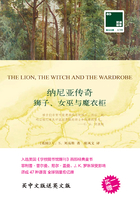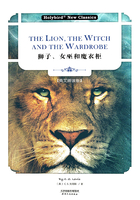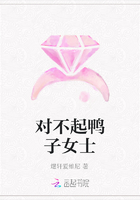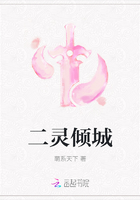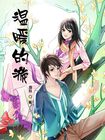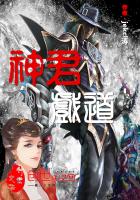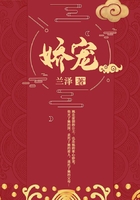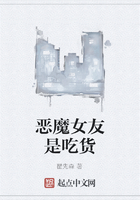I believe that every human being has a talent—something that he can do better than anyone else. And I believe that the distinction1 between so-called "creative" talents and ordinary run-of-the-mill talents is an unnecessary and man-made distinction. I have known exterminators, typists, waitresses and machinists whose creative joy and self-fulfillment in their work could not be surpassed by Shakespeare' s or Einstein' s.
When I was in my teens, I read a quotation2 from Thomas Carlyle: "Blessed is he who has found his work. Let him ask no other blessedness." At the time I thought that was a pretty grim and dreary remark, but I know now that Mr. Carlyle was right. When you find the thing that you can do better than anything else in the world, then all the wonderful by-products fall in line financial security, happy personal relationships, peace of mind. I believe that until you find it your search for the by-products will be in vain.
I also believe that in the process of searching, no experience is ever wasted, unless we allow ourselves to run out of hope. In my own case I had thirty-four different jobs before I found the right one. Many of these jobs were heartbreakingly3 difficult. A few of them involved working with unscrupulous and horribly unpleasant people. Yet, in looking back, I can see that the most unpleasant of these jobs, in many cases, give me the biggest dividends the most valuable preparation for my proper life work.
And I have seen this happen in the destinies of hundreds of people. Periods which they thought were hopeless, dark and of no possible practical value have turned out to be the most priceless experiences they ever had. One of my friends is a famous package designer for American industry. She was just given a promotion for which she competed with six well-qualified designers. Her past, like all of ours, had its good times and its bad times. One of the worst of the bad times was a period when she lost her husband and was left with two small children to support. She took a clerking job in a grocery store because her apartment was on the floor above it and between customers she could run up and keep an eye on the babies. It was a two-year period of great despair, during which she was constantly on the verge of suicide4. Yet the other day when she told me of her promotion to the top package design post, she exclaimed in astonishment, "And do you know that the single factor which swung it in my favor was that I alone had over-the-counter experience with the customers who buy our packaged foods!"
When people talk about the sweet uses of adversity, I think they unduly stress a grim and hopeless resignation, a conviction that, like unpleasant medicine, it is somehow "good for us". But I think it is much more than that. I know that the unhappy periods of our lives offer us concrete and useful plus values, chief among them a heightened understanding and compassion for others. We may not see it at the time, we may consider the experience entirely wasted, but, as Emerson says, "The years teach much which the days never know."
也许我要说的这些话看起来像是为自己的生意做宣传,然而这是我最了解的东西……我对它的信仰真诚而深切。
我相信,每个人都是天才——相比别人而言,有些事他可能做得更好。我相信,所谓“创造性”才能与普通才能间的差距不过是一种人为的不必要的区别。我认识的一些杀虫员、打字员、女侍者和机械工,他们在工作中所创造的快乐与实现的自我价值,也许是莎士比亚或爱因斯坦也无法超越的。
我在年少时曾读过托马斯·卡莱尔的一句话:“一个人若是找到适合自己的工作,他便是幸福的,请让他别再祈求其他的幸福了。”当时,我觉得这句话过于残酷沉闷,而如今才知道卡莱尔先生是正确的。当你找到世上你能做得最好的事情时,稳定的收入、快乐的人际关系以及平静的心情等所有奇妙的“副产品”都会接踵而来。我相信,除非你找到它,否则你对一切“副产品”的追求也不过是徒劳而已。
我也相信,除非我们允许自己放弃希望,否则任何经历都会在找寻的过程中发挥作用。就我而言,在找到合适的工作前,我曾尝试过34种不同的工作。其中有很多工作的艰难程度简直令人难耐。在有些工作中,还会与一些不道德且令人讨厌的人相处。但是,回过头来才领悟到,在很多情况下,我从那些最令人头疼的工作中得到了最丰厚的报酬,它们成为我正确事业生涯的最有价值的准备。
在成百上千人的命运中,我也看到了这一点。他们拥有的最宝贵的经历,正是那些曾经被认为绝望、黑暗、不可能有实用价值的时期。我的一位朋友现在是美国著名工业包装设计师。最近,在与6位高水平设计师的竞争中,她脱颖而出,得到了提升。像我们所有人一样,她的过去也有巅峰与低谷。她失去了丈夫,还得抚养两个孩子,那是她最艰难痛苦的时期。她在自家楼下找了一份杂货店营业员的工作,这样一来,在没有顾客时她就可以抽空跑上楼看看孩子。那是她最绝望的两年,期间她几度想要自杀。但是,在她告诉我她被提升为首席包装设计师的那天,她惊叹道:“你知道吗?只有我与购买我们包装食品的顾客有过直接的接触,而这正是我获得这份工作的唯一原因。”
我认为,人们在谈论逆境的益处时,过度强调了一种冷酷与绝望的顺从,一种良药苦口般的信仰——逆境或多或少都有益于我们。然而,我觉得它的益处远不止此。我知道,生活中的不幸会带给我们具体而有用的附加值,其中最主要的就是对人们更深切的理解与同情。也许,我们当时并未意识到这一点,也许会认为这些经历毫无价值,但是,正如爱默生所言:“年复一年所积累的学问,是日复一日所无法了解的。”
错过的辉煌
The Hidden World around Us
哈里·A.奥弗斯特里特/Happy A. Overstreet
Ever since Socrates was introduced to my adolescent1 mind, he has been one chief master of my thinking. What he believed still seems to me to be indispensable for carrying on an intelligent and responsible life. He believed that he did not know. For myself, I have come to change his negative into a positive. I know that there is far more in this universe for me to know than I now know.
I recently had a dramatic illustration of this. My wife and I, driving through Arizona, stopped at a "collector' s shop" in Tucson, where stones and minerals of many kinds were on display. In the course of the visit, we were taken into a small room where rocks were laid out on shelves. They were quite ordinary-looking rocks. Had I seen them on some hillside, I would not have given them a second thought. Then the man closed the door so that the room was in total darkness and turned on an ultraviolet lamp.
Instantly the prosaic rocks leaped into a kind of glory2. Brilliant colors of an indescribable beauty were there before our eyes.
A very simple thing—and yet a very tremendous3 thing—had happened. A certain power had been snapped on; and a hidden world leaped into life.


